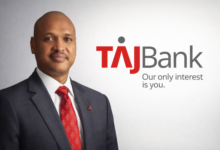 BudgiT Foundation Nigeria, a Non-Governmental Organisation (NGO) has urged the Federal Government to as a matter of urgency check the alarming rate of emigration, popularly called “Japa’’.
BudgiT Foundation Nigeria, a Non-Governmental Organisation (NGO) has urged the Federal Government to as a matter of urgency check the alarming rate of emigration, popularly called “Japa’’.
Mr Gabriel Okeowo, Country Director of the foundation, told the News Agency of Nigeria (NAN) in a telephone interview on Wednesday in Abuja that the cost of the trend to the economy was devastating.
He said although the foundation was yet to carry out an analysis of how much Nigeria was losing in monetary terms to the trend, there was no doubt that it was huge.
According to him, government should constitute a think-thank to map out workable strategies or policies that will drastically reduce the trend.
Okeowo said rather than turning its population into an advantage, Nigeria was losing its youthful population to other countries, who seem to better understand the power of human capital.
He said there was nothing wrong with emigration, saying it was human nature to constantly seek opportunities in different sectors of the economy in other countries.
Okeowo, however, said he was concerned with the manner in which the country’s youthful population was emigrating to develop the economies of other nations, without significant impact on Nigerian economy.
He said human capital was every nation’s asset that should not be neglected for any reason.
“We have not done any analysis to know how much this is costing us as a nation but the trend we know is a dangerous one that will adversely affect our economy.
“This is happening because we do not understand the capacity of human capital.
“Countries that know how much human capital contributes to nation building are opening their borders to Nigerians to build their economy.
“What build a nation is the people and Nigeria is blessed with it, unfortunately the level of brain-drain is disturbing,’’ he said.
Okeowo said government ought to create enabling environment for entrepreneurship to thrive.
He “a lot of countries and agents were catching in on the development to make money because relocation is not cheap.
“You see people selling their assets or borrowing money to travel.
“If the opportunities are there, what we are seeing today will not be at an alarming rate.’’
The country director said one of the major causes of the trend was the inability of government to come to a reasonable agreement with the workforce.
He said it was no news that some lecturers left the country to take up appointments in foreign countries during the Academic Staff Union of Universities (ASUU) strike that lasted for eight months.
“Some Nigerian lecturers and students relocated to other countries during the eight months long ASUU strike and same applies to doctors, nurses and other skilled personnel.’’












